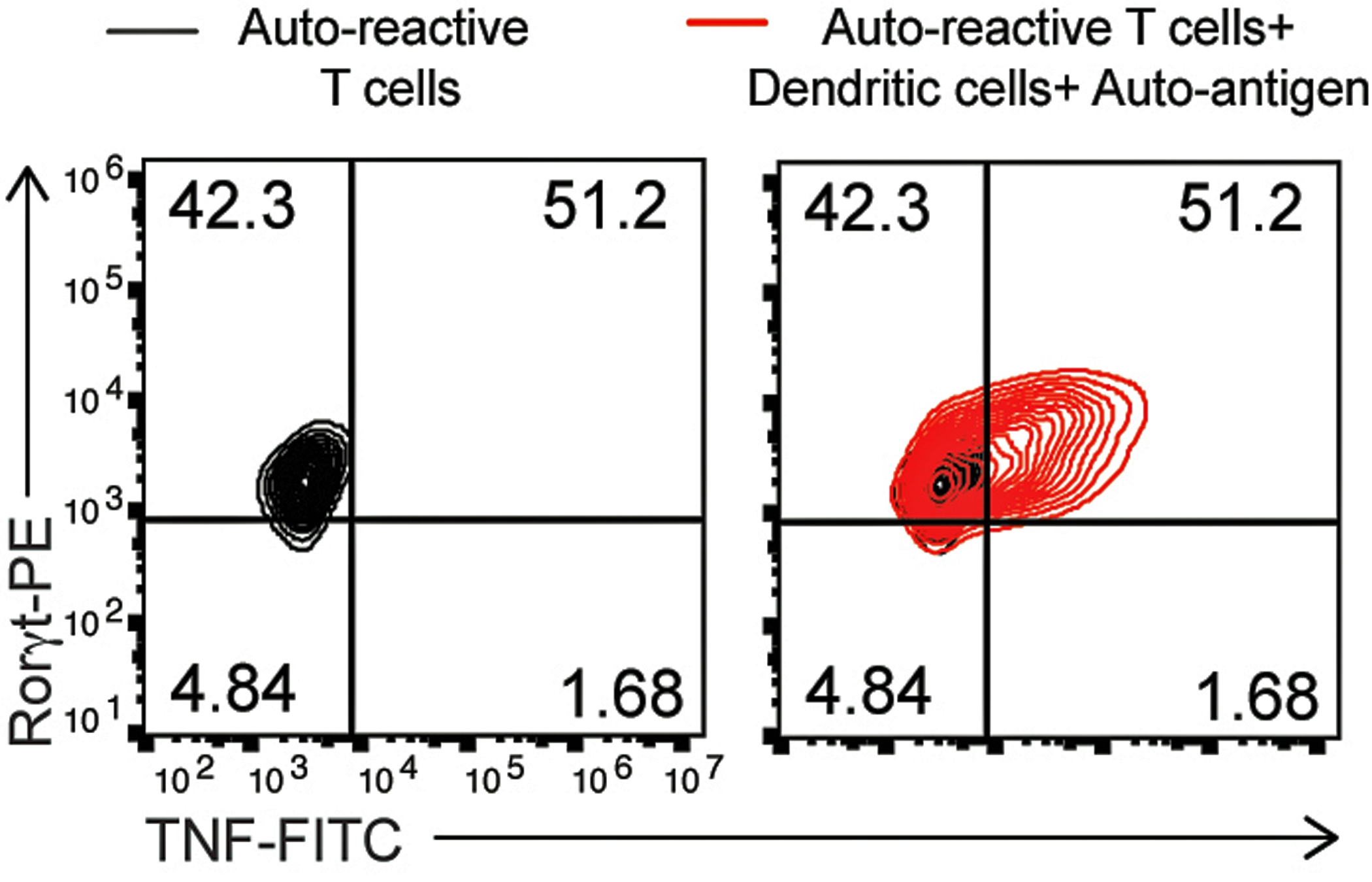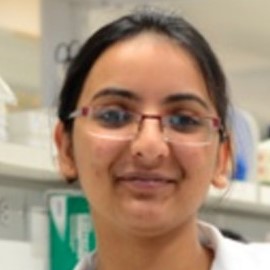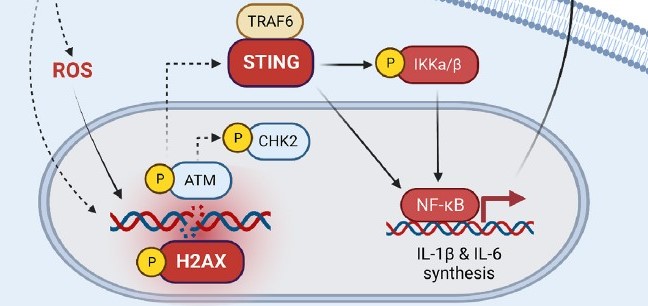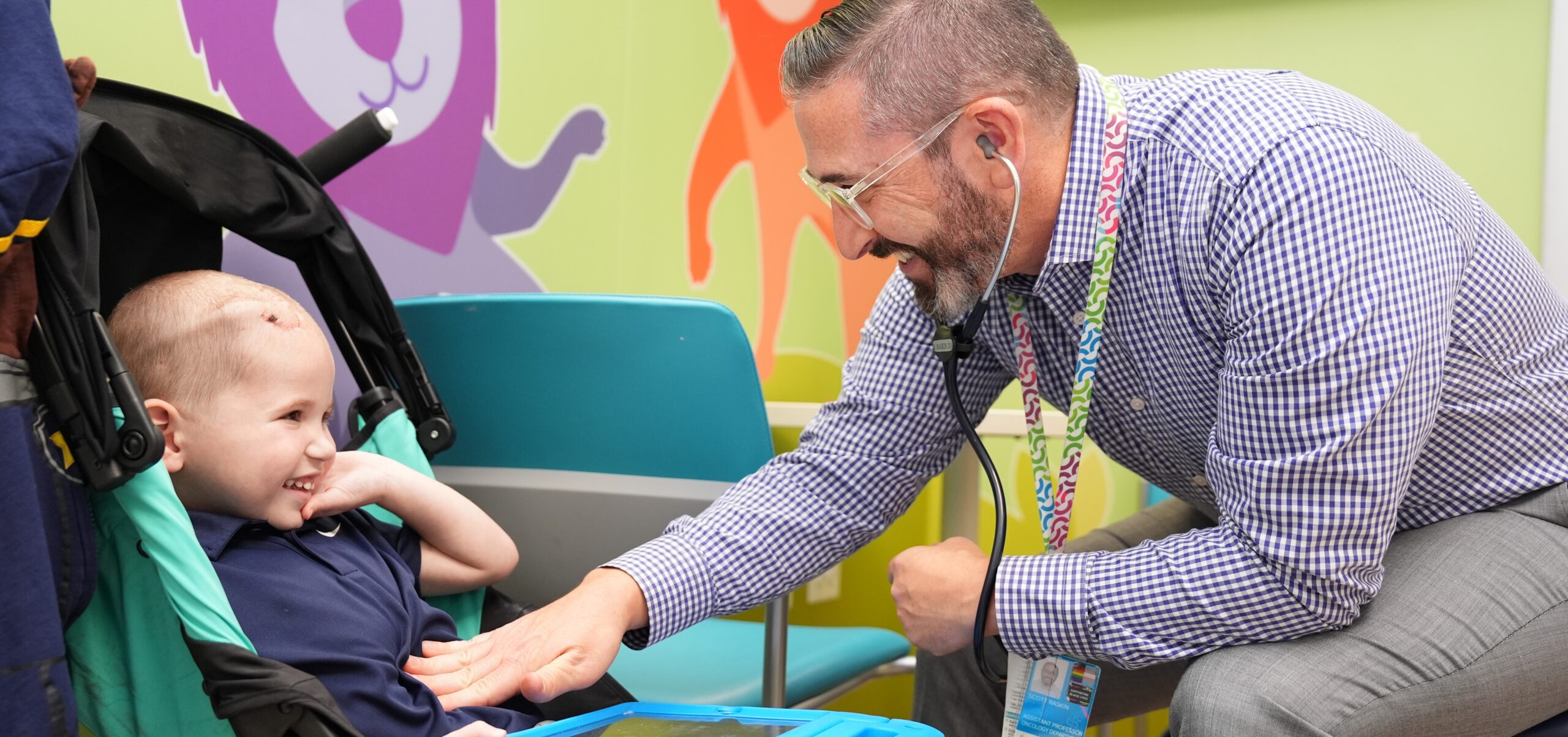Newly Discovered Pathway Suggests How T-Cells Can Help Drive MS, IBD and Type 1 Diabetes
Research By: Aakanksha Jain, PhD | Chandrashekhar Pasare, DVM, PhD
Post Date: December 17, 2019 | Publish Date: Dec. 17, 2019

In a study published online Dec. 17, 2019, in Nature Immunology, scientists at Cincinnati Children’s report finding a key molecular pathway that may open doors to better treatments for autoimmune diseases.
The study, in mice, shows how auto-reactive T cells, macrophage and dendritic cells in the immune system work through two other molecules—TNF (tumor necrosis factor) and FasL (fas ligand)—to produce overabundant amounts of IL-1b (cytokine interleukin-1 beta).
This excess amount of IL-1b protein appears to feed a T-cell-driven inflammation process found in diseases including multiple sclerosis (MS), type 1 diabetes and inflammatory bowel disease (IBD).
“This means our findings have two previously unknown implications,” Pasare explained. “We show for the first time that IL-1b can be made in the absence of infection and that T cells are major drivers of IL-1b in an autoimmune setting.”
The findings suggest that targeting the TNF and FasL pathway of IL-1b production is more likely to be an effective way of treating auto-immune diseases in humans. However, it remains too early to determine whether these mouse-based findings will translate safely and effectively to humans.
Read more about the research
| Original title: | T cells instruct myeloid cells to produce inflammasome-independent IL-1β and cause autoimmunity |
| Published in: | Nature Immunology |
| Publish date: | Dec. 17, 2019 |
Research By







